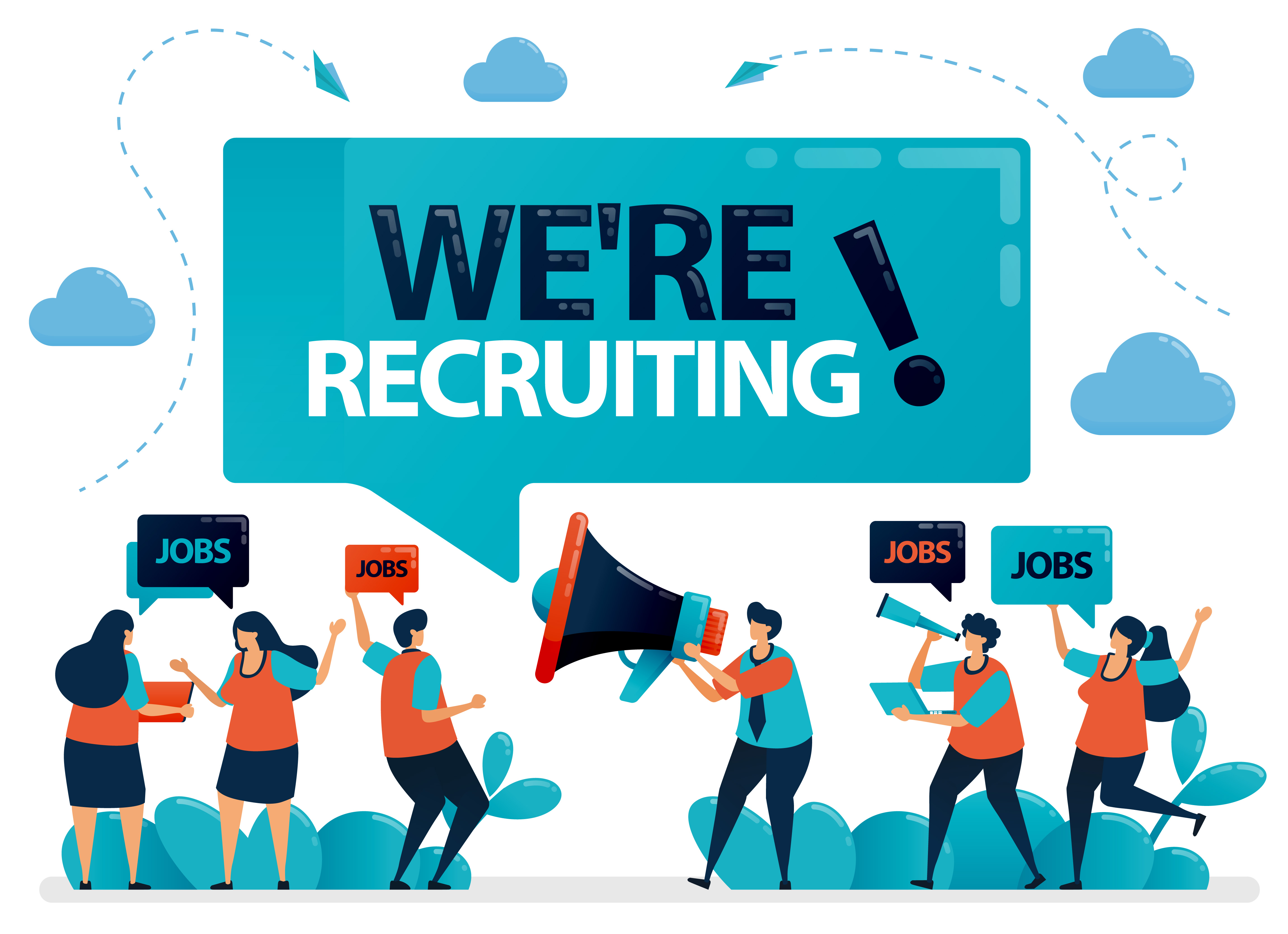Have you ever wondered what goes into finding the right person for a job, or perhaps, what exactly a recruitment consultant does all day? It's a question many people ask, especially as the way we work keeps changing. Well, finding the right people for any organization is more than just putting up a job advertisement; it's a careful, thoughtful process that recruitment consultants truly make their own. So, you know, they're like the unsung heroes of matching talent with opportunity.
In a way, a recruitment consultant's role is pretty central to how businesses grow and thrive. They are the ones who help bring in new talent, making sure that a company's human capital is strong and ready for what's next. This involves, for instance, a lot of different steps, all aimed at getting the best people on board, usually on time and within a set budget. It's about building teams that really click and get things done, which is, honestly, a big deal for any company trying to meet its goals.
This article will explore the ins and outs of what a recruitment consultant actually does. We'll look at their daily work, how they fit into the bigger picture of hiring, and why their skills are so important in our current job market. You'll get a clearer picture of this often misunderstood but very important role, which is, you know, quite fascinating when you dig into it.
Table of Contents
- What is a Recruitment Consultant?
- The Daily Life of a Recruitment Consultant
- The Skills That Make a Great Consultant
- How Recruitment Consultants Help Businesses
- The Future of Recruitment Consulting
- Frequently Asked Questions (FAQs)
- Conclusion: The Value of a Recruitment Consultant
What is a Recruitment Consultant?
A recruitment consultant, in simple terms, is a professional who helps connect job seekers with companies looking to hire. It's a bit like being a matchmaker for careers, you know? They work with businesses to figure out exactly what kind of person they need, and then they go out and find those people. This involves, for example, a lot of different steps, from understanding the job requirements to finding potential candidates.
The goal, really, is to make sure that the right person ends up in the right job. This means they are involved in what we might call the whole hiring journey, from the very first idea of needing someone new all the way through to when that person starts their new role. So, they're pretty involved, actually, in making sure everything goes smoothly for both the company and the person looking for work.
More Than Just Hiring
It's important to remember that recruitment is much more than just the act of hiring. Based on our understanding, it's an overall process that includes identifying potential candidates, sourcing them from various places, carefully screening their backgrounds, shortlisting the most promising ones, and then conducting interviews. This can be for either permanent or temporary positions, you see, so it's quite broad.
Recruitment, or recruiting as it's often called, is really the first step in building a company's human capital. It's about bringing in new talent to help meet strategic goals, which is, you know, a big part of how any organization moves forward. This can involve, for instance, things like employer branding, marketing job openings, and even sourcing candidates directly.
The Consultant's Role in the Hiring Process
A recruitment consultant often takes charge of many parts of this overall process. They might begin by helping a company define what they truly need in a new team member, which is, you know, a very important first step. Then, they actively seek out, find, and help hire candidates for specific positions, so they are quite proactive.
The recruitment definition, in a way, includes the entire hiring process from its beginning to its completion. This means a consultant is often involved in everything from figuring out a staffing need, to identifying, attracting, interviewing, selecting, hiring, and even helping with the onboarding of new employees. It's a pretty comprehensive role, actually, making sure the right people are brought on board for the right jobs.
The Daily Life of a Recruitment Consultant
What does a recruitment consultant actually do on a typical day? Well, it's rarely boring, that's for sure. Their days are usually a mix of talking to people, doing some research, and helping things move along for both job seekers and companies. It's a very dynamic sort of work, you know, with lots of different things happening.
They might start their day by reviewing new job openings from clients or checking in on candidates they've already placed. There's a lot of communication involved, which is, honestly, a big part of what makes the job tick. They are constantly juggling multiple tasks and conversations, which, you know, keeps them on their toes.
Connecting with People
A big part of a consultant's day involves talking to people. This means reaching out to potential candidates who might be a good fit for a job, as well as keeping in touch with companies they are working for. They spend a good deal of time building relationships, which is, you know, very important in this line of work.
They might be on the phone, sending emails, or even meeting people face-to-face, depending on the situation. This constant connection helps them understand what both sides are looking for, which, you know, makes it easier to find that perfect match. It's about listening carefully and really getting what someone needs.
Finding the Best Fit
Once they know what a company is looking for, consultants then go about finding qualified candidates. This is where their sourcing skills really come into play. They might use online job boards, professional networks, or even direct outreach to find individuals who have the right skills and experience. It's a bit like being a detective, in a way, searching for clues.
They then screen these candidates, which involves looking at resumes, conducting initial interviews, and making sure they meet the basic requirements. This step is pretty important for shortlisting the most suitable people, which, you know, saves everyone a lot of time later on. They're trying to find that truly excellent candidate.
Helping Both Sides
A recruitment consultant doesn't just work for the company; they also help the job seeker. They might offer advice on resumes, prepare candidates for interviews, and even help negotiate job offers. It's about making sure both parties feel good about the outcome, which is, you know, a very human aspect of the job.
They act as a go-between, making sure communication flows smoothly and that any questions or concerns are addressed. This can be, you know, quite helpful for people who might be nervous about a job interview or unsure about salary expectations. They are there to support the entire process.
The Skills That Make a Great Consultant
To be truly good at this job, a recruitment consultant needs a special mix of abilities. It's not just about knowing how to find people; it's also about how you interact with them and how well you understand what's happening in the job market. So, you know, it takes a particular kind of person to really shine here.
They need to be organized, persistent, and good at handling different tasks at once. The role tends to be quite demanding, actually, so having these qualities really helps. They're always learning and adapting, which is, you know, pretty essential in this field.
Talking and Listening
One of the most important skills for a recruitment consultant is being able to talk to people effectively and, just as importantly, to listen. They need to ask the right questions to understand a company's culture and a candidate's career goals. This helps them make better matches, which, you know, is what it's all about.
They also need to be clear when explaining job details or providing feedback. Good communication helps build trust, and trust is, honestly, a very big part of being successful in recruitment. It's about making sure everyone is on the same page, which is, you know, quite important.
Solving Problems
Recruitment isn't always straightforward; there can be challenges, like finding very specific skills or dealing with tight deadlines. A good consultant needs to be a bit of a problem-solver, able to come up with creative ways to find candidates or overcome obstacles. This often means thinking outside the box, which is, you know, quite valuable.
They might need to adjust their search strategy or offer different solutions to a client if the initial plan isn't working out. This adaptability is, you know, pretty key to keeping things moving forward. They're always looking for ways to make things work better.
Knowing the Market
A successful consultant has a good grasp of the job market. They understand what skills are in demand, what typical salaries are for different roles, and what trends are shaping the hiring landscape. This knowledge helps them give good advice to both companies and candidates, which is, you know, very helpful.
They stay up-to-date by reading industry news, attending events, and talking to people in various fields. This constant learning means they can offer insights that others might miss, which, you know, gives them an edge. They're always trying to stay ahead of the curve.
How Recruitment Consultants Help Businesses
Businesses often turn to recruitment consultants for a number of good reasons. It's not just about filling a vacancy; it's about getting the right strategic support to build a strong team. They offer a level of expertise that many companies just don't have in-house, which is, you know, a big benefit.
From our research, recruitment is the process of finding and hiring qualified employees to fill open positions in a company. Consultants, human resources managers, hiring managers, or talent acquisition specialists all play a part. Consultants, though, often bring a focused, external perspective that can be very effective.
Saving Time and Money
Finding new employees can take a lot of time and resources for a company. A recruitment consultant can significantly reduce this burden. They handle the initial search, screening, and interviewing, which frees up a company's internal staff to focus on their main duties. This can, you know, save a lot of valuable time.
By finding the right person quickly, they also help companies avoid the costs associated with long vacancies or bad hires. A consultant's efficiency means less money spent on advertising, background checks, and the time of internal staff, which is, you know, a pretty clear financial advantage.
Finding Hidden Talent
Sometimes, the best candidates aren't actively looking for a job. These are often called "passive candidates," and they can be hard to find without specialized tools and networks. Recruitment consultants are very good at reaching out to these individuals, who might not see a job advertisement on their own. This is, you know, a real skill.
They have extensive networks and access to databases that allow them to identify talent that a company might never find through traditional methods. This ability to uncover hidden gems means businesses get access to a wider pool of highly qualified people, which is, honestly, a huge plus.
Making the Process Smooth
The recruitment process can be quite complex, involving many steps and a lot of coordination. Consultants help make this process much smoother. They manage the communication between candidates and companies, schedule interviews, and handle all the administrative tasks. This ensures a professional experience for everyone involved, which is, you know, very important for a company's reputation.
They also provide valuable feedback and guidance throughout the entire hiring journey, from inception to placement. This support helps both parties feel comfortable and informed, which, you know, reduces stress and makes the whole experience better. It's about keeping things organized and clear.
The Future of Recruitment Consulting
The role of a recruitment consultant is always changing, just like the job market itself. With new technologies and different ways of working, consultants are constantly adapting. They're looking at things like artificial intelligence to help with candidate sourcing, and they're also focusing more on things like diversity and inclusion in hiring, which is, you know, very important these days.
They're becoming even more strategic partners for businesses, offering insights beyond just filling roles. It's about helping companies plan their future workforce and build strong talent pipelines. This ongoing and dynamic process means consultants will continue to be a vital part of how organizations find and bring the right people on board for the right jobs, which is, you know, a pretty exciting prospect.
For more general information on how organizations find new talent to help meet their strategic goals, you can Learn more about recruitment on our site. Also, you might find more specific details about the different types of recruiting and how they work by checking out this page.
The overall process of identifying, sourcing, screening, shortlisting, and interviewing candidates for jobs, whether permanent or temporary, is what recruitment is all about. Consultants are at the heart of this, always looking for ways to optimize the process and ensure a successful outcome. They are, in a way, the architects of talent acquisition, always building and refining their approach.
To learn more about the broader concept of recruitment and its various best practices, you might find useful information on reputable HR and career sites. For instance, a good resource for understanding the foundational principles of talent acquisition can often be found at a site like the Society for Human Resource Management (SHRM), which is, you know, a well-known source for HR insights.
Frequently Asked Questions (FAQs)
What is the main purpose of a recruitment consultant?
The main purpose of a recruitment consultant is to act as a bridge between companies looking to hire and individuals seeking employment. They identify, attract, and select candidates for job positions, ensuring that the best fit is found for both the organization and the person. It's about making good matches, which is, you know, their core mission.
How do recruitment consultants find candidates?
Recruitment consultants use a variety of strategies to find candidates. This can include posting job advertisements on various platforms, actively searching professional social networks, using their own extensive databases, and even directly reaching out to individuals who might be a good fit but aren't actively looking for a job. They are quite proactive in their search, you know, trying many different avenues.
What are the benefits of using a recruitment consultant for a business?
Businesses benefit from using recruitment consultants in several ways. Consultants can save companies significant time and money by handling the entire hiring process, from sourcing to initial interviews. They also have the ability to find a wider pool of talent, including those not actively looking for jobs, and they make the overall hiring process much smoother and more efficient. It's a pretty comprehensive service, actually, that helps businesses grow their teams effectively.
Conclusion: The Value of a Recruitment Consultant
So, as we've explored, the recruitment consultant description paints a picture of a role that is both complex and incredibly valuable. They are the people who make sure organizations can find and bring the right talent on board, helping businesses meet their strategic goals and build strong teams. It's an ongoing and dynamic process that, you know, truly makes a difference in the working world today.
Their work involves a proactive approach to finding and attracting qualified candidates, from posting job advertisements to conducting interviews and managing the entire hiring journey. This means they are key players in the process of identifying, attracting, and selecting candidates for job positions within an organization. So, if you're looking to grow your team or find your next great opportunity, understanding the role of a recruitment consultant is, you know, pretty essential.



